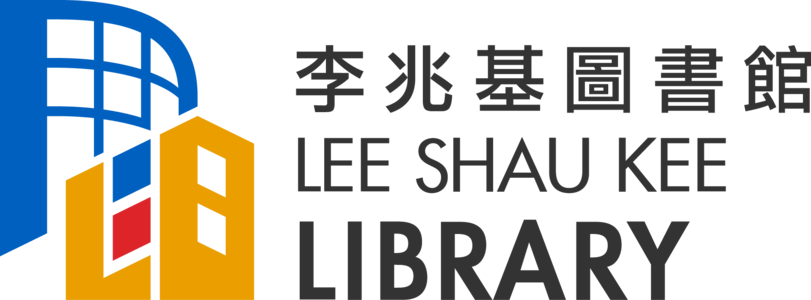
About the Program
Hosted by the Joint University Librarians Advisory Committee (JULAC), the Association of College & Research Library(ACRL) Information Literacy Immersion Program will be held on 3 – 7 June 2013, at the Hong Kong University of Science and Technology Library.
The ACRL Information Literacy Immersion Program provides instruction librarians the opportunity to work intensively for several days on all aspects of information literacy. Whether your institution is just beginning to think about implementing an information literacy component or whether you have a program well under way, the Immersion Program will provide you with the intellectual tools and practical techniques to build or enhance your institution’s instruction program. Immersion allows you to embrace your educational role by embarking on a path of teacher development and pedagogical inquiry in a community of practice for academic librarians devoted to collaborative learning, individual renewal, and instructional effectiveness. The Immersion Program is made up of two tracks – Teacher Track and Program Track. Each participant will be in one track and also participate in common Plenary Sessions.
The Immersion Program establishes a learning community in which participants contribute to its success through active engagement. English is the medium of instruction. Participants are expected to use English to communicate and participate actively in the discussions and activities throughout the Program.
Teacher Track
The Immersion Teacher Track focuses on individual development for those who are interested in enhancing, refreshing, or extending their individual instruction skills. Curriculum includes classroom techniques, learning theory, leadership, and assessment framed in the context of information literacy. Participants in the Teacher Track will prepare a description of an instructional situation and a related presentation in advance of the Immersion program. During Immersion, participants will revise the presentation based on feedback from colleagues and faculty.
The Immersion Teacher Track is for you if:
- You have little or no experience as a teacher or if you have experience teaching but would benefit from a focus on the fundamentals.
- You want to understand more about learning theory, and how to design lessons and assignments that accommodate different learning styles.
- You want an opportunity to practice and receive feedback on your teaching.
- You need to understand the role of assessment in improving your teaching techniques and the design of lessons and assignments.
- You want to identify and build on your leadership skills.
Teacher Track Learning Outcomes:
- Design meaningful instructional activities that address different learning styles, recognizing different student motivations, backgrounds, and experiences, in order to address student learning needs in a coherent and systematic fashion
- Adopt a constructivist approach to information literacy instruction in order to develop a theoretical perspective and foundation for selecting teaching approaches and learning activities.
- Teach from a learner-centered perspective in order to engage students in the learning process.
- Analyze and assess personal teaching methods, habits, and styles in order to expand pedagogical repertoire and shape diverse learning situations.
- Assess student learning in order to inform and improve practice.
- Develop and articulate a personal perspective of information literacy in order to make its applications to professional and personal life effective and meaningful.
- Capitalize on personal leadership characteristics/potential in order to commit acts of leadership and affect change in institutional/professional practice.
Program Track
The Immersion Program Track focuses on developing, integrating, and managing institutional and programmatic information literacy programs. Participants in the Program Track will develop individual case studies in advance of the Immersion program. Change dynamics, systems thinking, institutional outcomes assessment, scalability, and the integration of teaching, learning, and technology will be brought to bear on analyzing the various programmatic challenges presented in the case studies. Immersion participants will be expected to develop the case studies into an action plan for implementation at their home institution.
Program Track Learning Outcomes:
- Build partnerships/relationships with individuals and groups on campus in order to elevate information literacy to a campus-wide enterprise.
- Regularly scan the campus and higher education environment in order to use information literacy as a catalyst for the library’s participation in educational transformation.
- Engage in ongoing reflective practice in order to create and sustain renewal and growth of information literacy program development and leadership
- Exercise leadership within the library and throughout the campus in order to influence library, curriculum, and instructional decision
- Identify and garner resources in order to build the capacity necessary to accomplish an information literacy mission
- Value risk-taking and looking for the second right answer in order to engage in the creative process.
- Develop a culture of assessment and continuous learning in order to capitalize on strengths as well as opportunities for change.
Plenary Sessions for Teacher and Program Tracks
Participants in Teacher Track and Program Track all engage in common topical sessions on the following topics:
- Information Literacy – The information literacy segment of the Immersion Program will examine the evolving educational role of academic librarians with particular emphasis on understanding information literacy as an educational reform movement. Frameworks for conceptualizing information literacy (typologies, research-based models, and national standards) will be presented to assist participants in exploring and refining their own understanding of what information literacy means. Implementation issues will be addressed with particular emphasis on how information literacy relates to critical thinking.
- Assessment – Evaluating the effectiveness of library instruction will be another key component of the Immersion Program. How do we know that students are achieving the information literacy we strive for? What difference does library instruction make in a student’s overall academic success? What is outcomes assessment and what does it mean for library instruction? Are our overall program goals being met? How can library instruction fit into overall institutional assessment and accreditation? Formal and informal techniques to assess student progress will be considered. “Good teaching means good learning” will be the underlying theory.
last modified 06 December 2016

